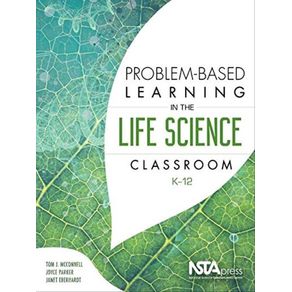Problem-Based Learning in the Physical Science Classroom, K-12 will help your students truly understand concepts such as motion, energy, and magnetism in true-to-life contexts. The book offers a comprehensive description of why, how, and when to implement problem-based learning (PBL) in your curriculum. Its 14 developmentally appropriate lessons cover forces and motion, energy transformation, and electricity and magnetism. The lessons' inviting titles include "Cartoon Cliff Escape" and "Rube Goldberg Machine." This volume is the third in NSTA's PBL series, which also covers Earth and space science and life science. Like those guides, Problem-Based Learning in the Physical Science Classroom, K-12 shows you how to use scenarios in creative ways to represent real-world science in all its messy, thought-provoking glory. The scenarios will prompt K-12 learners to work collaboratively, the way scientists do. They'll analyze problems, ask questions, pose hypotheses, find needed information, and then construct solutions. In addition to complete lesson plans that support the Next Generation Science Standards, the book offers extensive examples, instructions, and tips for implementing open-ended inquiry. It also provides rich, authentic problems you can use as is or adapt. You can be confident the problems are effective because the authors not only facilitated the National Science Foundation-funded PBL Project for Teachers but also tested the problems in their own science classrooms.

